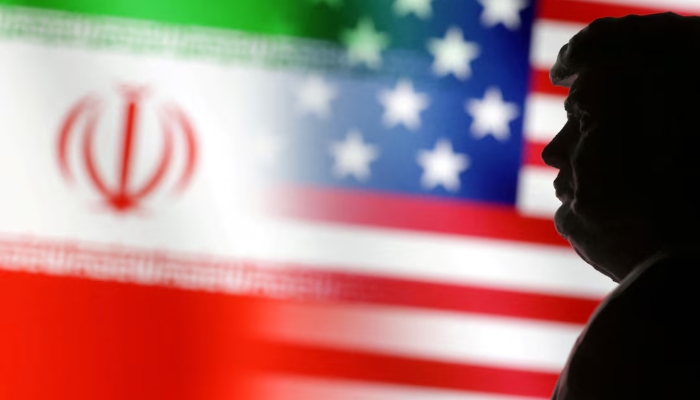Despite conflicting red lines, Iran and US will restart nuclear talks
Araqchi and Witkoff will hold fourth round of talks in Muscat through Omani mediators
In an effort to move forward as Washington hardens its position ahead of US President Donald Trump's trip to the Middle East, Iranian and US negotiators will restart talks on Sunday to discuss disagreements over Tehran's nuclear programme.
Although both Washington and Tehran have stated that they prefer to settle the long-running conflict diplomatically, they are still sharply apart on a number of issues that negotiators will need to get around in order to secure a new nuclear agreement and prevent military action in the future.
Iranian Foreign Minister Abbas Araqchi and Trump's Middle East envoy Steve Witkoff will hold the fourth round of talks in Muscat through Omani mediators, despite Washington taking a tough stance in public that Iranian officials said would not help the negotiations.
Witkoff told Breitbart News on Thursday that Washington's red line is: "No enrichment. That means dismantlement, no weaponisation,” requiring the complete dismantling of Iran’s nuclear facilities in Natanz, Fordow, and Isfahan.
"If they are not productive on Sunday, then they won't continue and we'll have to take a different route,” Witkoff said in the interview.
Trump, who has threatened military action against Iran if diplomacy fails, will travel to Saudi Arabia, Qatar and the United Arab Emirates on May 13-16.
Reacting to Witkoff's comments, Araqchi said on Saturday that Iran would not compromise on its nuclear rights.
"Iran continues negotiations in good faith... if the aim of these talks is to limit Iran’s nuclear rights, I state clearly that Iran will not back down from any of its rights," Araqchi said.
Tehran is willing to negotiate some curbs on its nuclear work in return for the lifting of sanctions, according to Iranian officials, but ending its enrichment programme or surrendering its enriched uranium stockpile are among "Iran's red lines that could not be compromised" in the talks.
A senior Iranian official close to the negotiating team said that US demands for "zero enrichment and dismantling Iran's nuclear sites would not help in progressing the negotiations".
"What the US says publicly differs from what is said in negotiations," the official said on condition of anonymity.
He said matters would become clearer when talks take place on Sunday, which was initially planned for May 3 in Rome but were postponed due to what Oman described as "logistical reasons".
Moreover, Iran has flatly ruled out negotiating its ballistic missile programme and the clerical establishment demands watertight guarantees Trump would not again ditch a nuclear pact.
Trump, who has restored a "maximum pressure" campaign on Tehran since February, exited Tehran's 2015 nuclear pact with six world powers in 2018 during his first term and reimposed crippling sanctions on Iran.
Iran, which has long said its nuclear programme is peaceful, has breached the 2015 pact's nuclear curbs since 2019 including "dramatically" accelerating its enrichment of uranium to up to 60% purity, close to the roughly 90% level that is weapons-grade, according to the UN nuclear watchdog.
-
 Alix Earle And Tom Brady’s Relationship Status Revealed After Cosy Super Bowl 2026 Outing
Alix Earle And Tom Brady’s Relationship Status Revealed After Cosy Super Bowl 2026 Outing -
 Why King Charles Has ‘no Choice’ Over Andrew Problem
Why King Charles Has ‘no Choice’ Over Andrew Problem -
 Shamed Andrew Wants ‘grand Coffin’ Despite Tainting Nation
Shamed Andrew Wants ‘grand Coffin’ Despite Tainting Nation -
 Keke Palmer Reveals How Motherhood Prepared Her For 'The Burbs' Role
Keke Palmer Reveals How Motherhood Prepared Her For 'The Burbs' Role -
 King Charles Charms Crowds During Lancashire Tour
King Charles Charms Crowds During Lancashire Tour -
 ‘Disgraced’ Andrew Still Has Power To Shake King Charles’ Reign: Expert
‘Disgraced’ Andrew Still Has Power To Shake King Charles’ Reign: Expert -
 Why Prince William Ground Breaking Saudi Tour Is Important
Why Prince William Ground Breaking Saudi Tour Is Important -
 AOC Blasts Jake Paul Over Bad Bunny Slight: 'He Makes You Look Small'
AOC Blasts Jake Paul Over Bad Bunny Slight: 'He Makes You Look Small' -
 At Least 53 Dead After Migrant Boat Capsizes Off Libya
At Least 53 Dead After Migrant Boat Capsizes Off Libya -
 'God Of War' Announces Casting Major Key Role In Prime Video Show
'God Of War' Announces Casting Major Key Role In Prime Video Show -
 Real Reason Prince William, Kate Broke Silence On Andrew Scandal Revealed
Real Reason Prince William, Kate Broke Silence On Andrew Scandal Revealed -
 Drew Barrymore Responds To 'Charlie's Angels' Costar's Comments About Her
Drew Barrymore Responds To 'Charlie's Angels' Costar's Comments About Her -
 Shakira Slips Hard On Stage During Life Show
Shakira Slips Hard On Stage During Life Show -
 King Charles Speaks Out Over Andrew's Scandal: 'Stand Ready To Help Police'
King Charles Speaks Out Over Andrew's Scandal: 'Stand Ready To Help Police' -
 Dax Shepard Recalls Horrifying Accident That Almost Killed Him
Dax Shepard Recalls Horrifying Accident That Almost Killed Him -
 Logan Paul's Bodyguard Hits Fan On Super Bowl Day
Logan Paul's Bodyguard Hits Fan On Super Bowl Day




